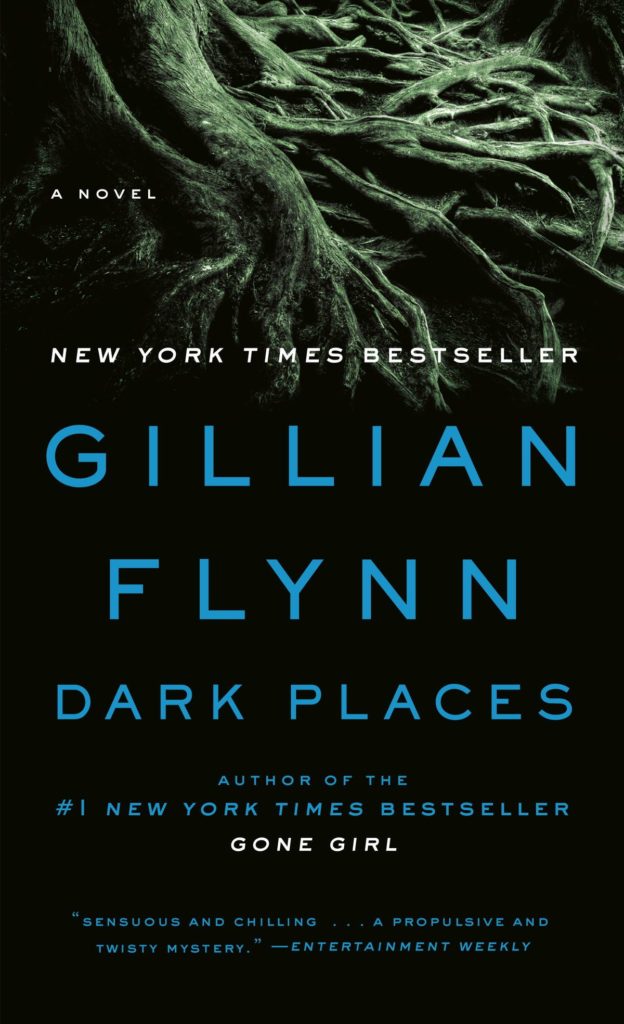
Let's be real: it's amazing that Gillian Flynn didn't properly explode until Gone Girl. Her first two novels were accomplished. Sharp Objects was disquieting and deeply unpleasant in places, but it was pointy right to the very end. Dark Places is more assured, with a strong mystery intertwined throughout and a more immediately understandable main character. Dark Places is a prescient novel; the fringe that it depicts is no longer underground.
Libby Day was seven when she implicated her brother in the murder of her mother and sisters. Twenty five years later, she's never had a job, is running out of the allowance she received from her charity trust in the heyday of the nation's grief for her, and a club of true crime aficionados is offering her money in return for souvenirs and contact with her brother. After years of believing her own hype, is Libby ready to consider that her family's massacre may not have gone as planned?
Presented in a mixture of "now†and the days leading up to the massacre, Dark Places offers us a broken lead and provides four perfect reasons for her behaviour. Libby is a mess, she knows it, and she makes few apologies for it. Libby's case is certainly extreme, but it's credible nonetheless. Flynn has a knack for writing flawed but compelling characters, and Libby's voice is loud in the confines of her own head, a coping mechanism for an uncaring world.
Dark Places is an incendiary examination of America in crisis across three decades, and the psychic damage that continues to be inflicted upon someone suffering PTSD. It is about the illusion of community among people who care only that they're better off than those below them. It is about the morbid frisson that people get from reading about real murders and trying to solve them (now an international pastime, then something confined to the seamy underbelly of society).
The conclusion, or "solution†to Dark Places might be a stretch too far for some, but the seeds are littered throughout the novel. The beauty of Dark Places is that it works, and it's logical, but it's not neat by any stretch of the imagination. Flynn doesn't outsmart herself, but her characters do frequently, and with startling results. Unlike Sharp Objects, with an ending so graphic that it stays etched in the mind for years afterwards, Dark Places becomes fuzzy through the passage of time and books. It is a pleasure to rediscover and, though its stakes are relatively low, they're all that matter to Libby and the reader both.
Great as a character study, compelling as a murder mystery, and structured in an expertly addictive fashion, Dark Places is a star maker before its time. Gillian Flynn eventually got her due, but Dark Places deserves a proper television serial adaptation to bring it to life for people who just can't get enough of frostbitten survivors of traumatic events. "Thriller†is a genre term applied far too loosely, but it truly sticks to Dark Places.
